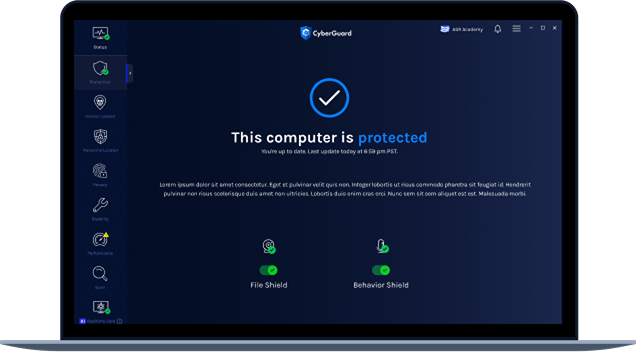A virtual private network gives you online privacy and anonymity by creating a private network from a public Internet connection. VPNs mask your Internet protocol (IP) address so your online actions are virtually untraceable. Most importantly, VPN services establish secure and encrypted connections, guaranteed to provide greater privacy than even a secured Wi-Fi hotspot.
Think about all the times you’ve been on the go, reading emails while in line at the coffee shop, or checking your bank account while waiting at the doctor’s office. Unless you were logged into a private Wi-Fi network that required a password, any data transmitted during your online session was likely vulnerable to eavesdropping by strangers using the same network.
The encryption and anonymity that a VPN provides protect all of your online activities: sending emails, shopping online, or paying bills. VPNs also help keep your Web browsing anonymous.
VPNs work by encrypting the internet data that’s exchanged between your device and the VPN server and routing your internet traffic through a network of remote servers managed by the VPN service provider. This prevents third parties from snooping on the data you send and receive and conceals your online activity behind a virtual IP address, helping you to keep your identity, location, and browsing activity hidden.
VPNs essentially create a data tunnel between your local network and an exit node in another location, which could be thousands of miles away, making it seem as if you’re in another place. This benefit makes VPNs valuable for people who live in countries that censor access to specific websites. It will also allow you to continue enjoying your favorite apps and websites from anywhere in the world, as if you were at home.
Here are some questions to ask when you’re choosing a VPN provider.
There are many points to consider when you’re choosing a VPN, so do your homework to make sure you’re getting the best fit for your needs. Regardless of which provider you choose, rest assured that any good VPN will provide far more security, privacy, and anonymity online than any public Wi-Fi hotspot ever could.
In summary, a VPN is a valuable tool for safeguarding your online activities against various cyber threats. However, it should be part of a broader cybersecurity strategy that includes other protective measures.
CyberGuard Internet Security keeps your digital life protected. It blocks viruses and malware, secures your emails and personal files, protects your passwords and webcam from hackers, and makes sure you can shop and bank online with total peace of mind.
 Like
0
Like
0
 Dislike
0
Dislike
0
 Love
0
Love
0
 Funny
0
Funny
0
 Angry
0
Angry
0
 Sad
0
Sad
0
 Wow
0
Wow
0